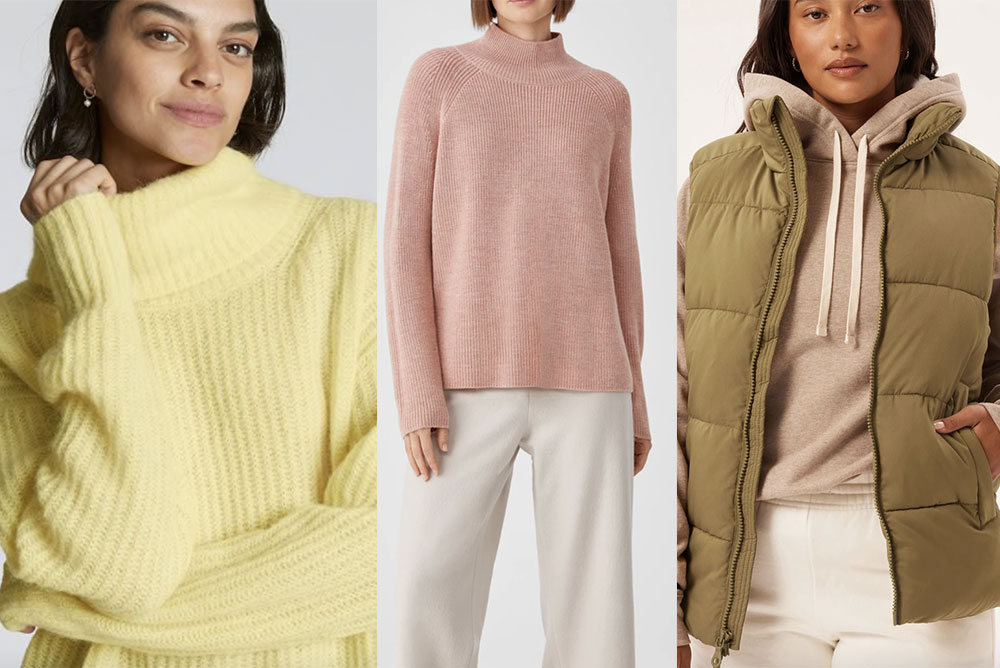
Left to right: Responsibly sourced alpaca and wool sweaters from Everlane and Eileen Fisher, respectively, and a unisex puffer made from recycled plastic bottles from Girlfriend Collective.
By Janet Kelly
THE FASHION industry’s dirty little not-so-secret secret: It’s one of the largest polluters on the planet, responsible for huge amounts of carbon emissions and waste.
Some designers, including Eileen Fisher and Stella McCartney, acknowledged that problem years ago. In 2009, Eileen Fisher began its Renew line, taking back its garments to be recycled. For material for its fabrics, the company uses responsible wool— from farmers who follow best practices for land management and animal welfare—and organic cotton grown without pesticides. Since founding her company in 2001, McCartney has been on an eco-friendly mission—no leather, feathers, fur or skin.
Other fashion manufacturers are also beefing up their plans to be better stewards of the Earth, by making clothing and accessories with materials that limit the amounts of chemicals and water used in producing them. Reformation, which started out selling vintage clothes out of a Los Angeles storefront in 2009, now makes their own from low-impact materials, rescued dead stock fabrics and repurposed vintage clothing. To keep textiles out of landfills, Reformation has been recycling and reusing clothes since 2015. Now with customers’ returned denim, sweaters and outerwear, they’re breaking down their clothes back into fiber and turning them into new products.
Shoe company Rothys makes its popular, washable flats out of recycled plastic bottles; Cariuma and Veja protect the Amazon rain forest by harvesting rubber for their sneakers’ soles without harming any trees.
Activewear brands Girlfriend Collective and Pangaia are also committed to Earth-saving practices. Send an old girlfriend back to Girlfriend Collective, and they’ll recycle it into a new girlfriend. Pangaia makes warm jackets out of wildflowers and turns its textile waste into pigment for dyes.
In case you were wondering, helping to reduce fashion’s impact on the environment doesn’t mean these companies are skimping on style. To prove it, we’ve picked out clothing from 11 brands that we—and we hope you—will be happy to wear while doing your part to curb the planet’s pollution.
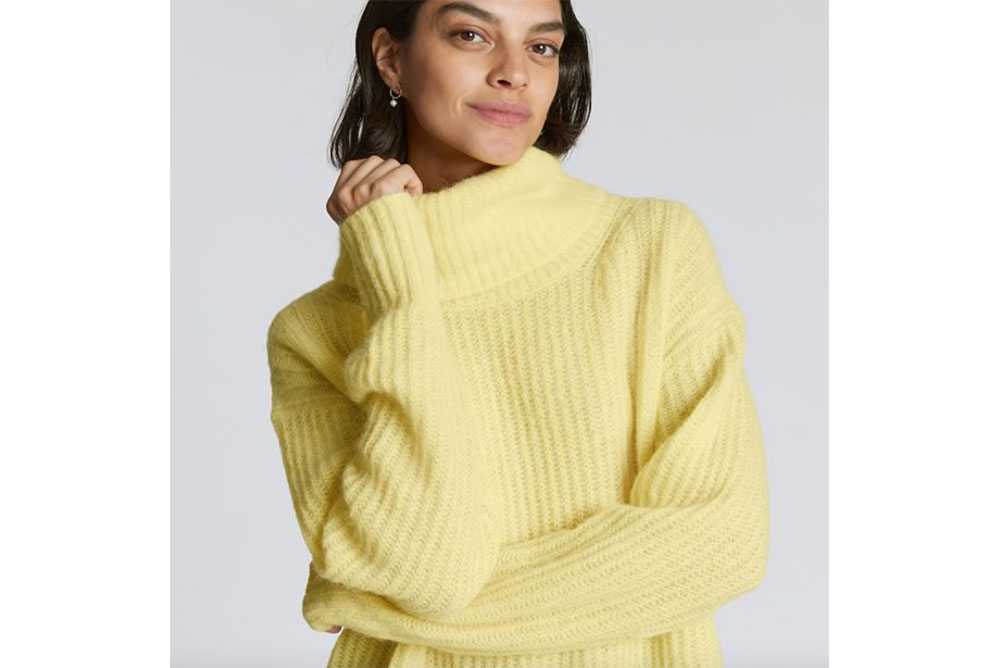 Yellow for winter? Hell, yes. Everlane’s oversize turtleneck ($175) gets its chunky, ribbed texture from a double-ply alpaca knit, which hits just below the rear for extra coverage and warmth. It’s a blend of alpaca, recycled nylon and merino wool. Everlane’s goal stated in its 2021 Impact Report is to shrink its carbon footprint by increasing use of recycled materials.
Yellow for winter? Hell, yes. Everlane’s oversize turtleneck ($175) gets its chunky, ribbed texture from a double-ply alpaca knit, which hits just below the rear for extra coverage and warmth. It’s a blend of alpaca, recycled nylon and merino wool. Everlane’s goal stated in its 2021 Impact Report is to shrink its carbon footprint by increasing use of recycled materials.
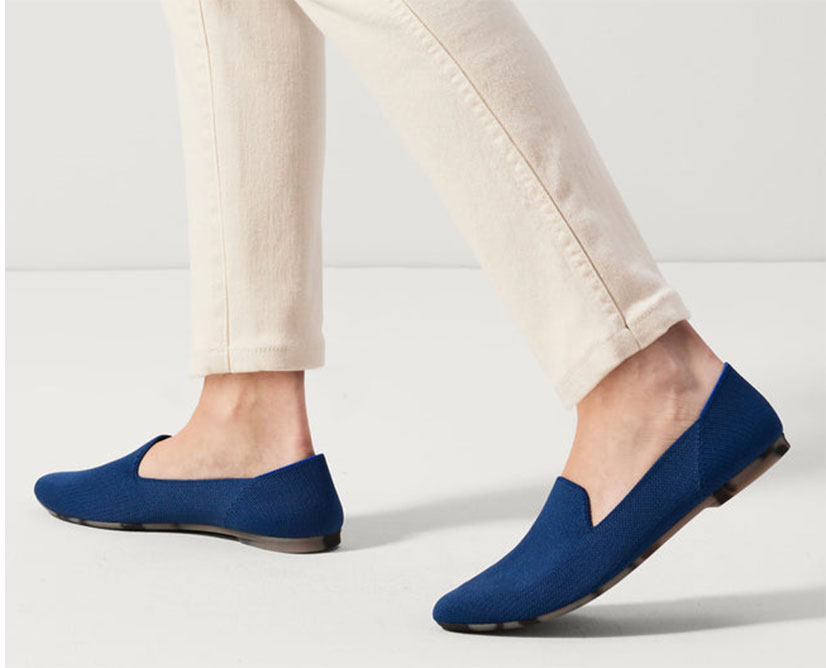
Tired of black? Cool, dark blue Almond Loafers ($179) from Rothy’s are knitted into thread from recycled plastic bottles. When they get dirty, take out the insoles and pop shoes and insoles into the washing machine (use cold water and mild detergent on the delicate cycle).
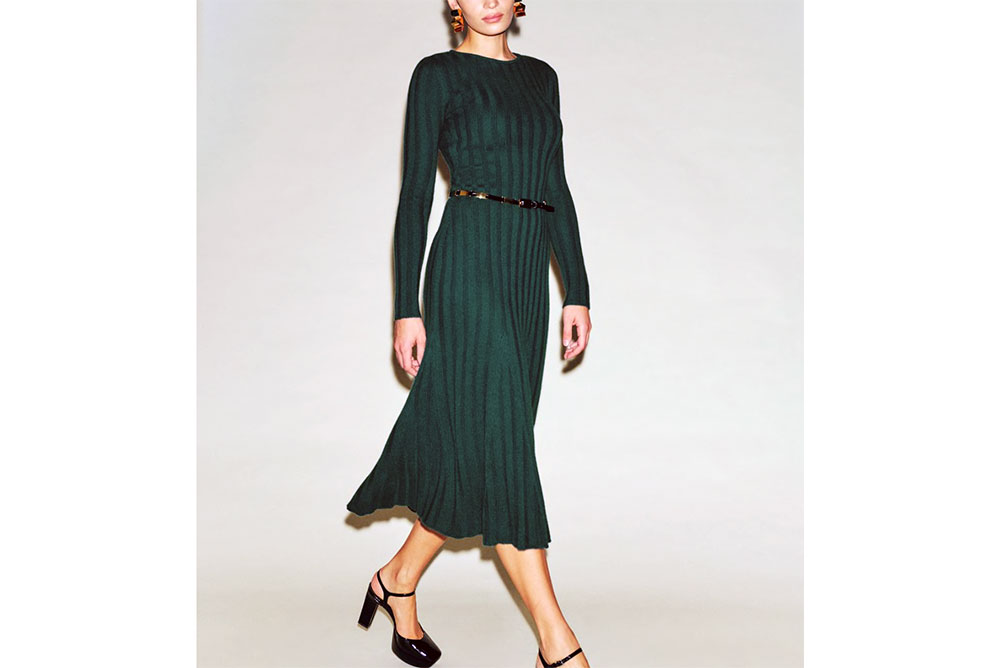
There’s much to like about this one-and-done sweater dress— the flattering fitted waist, easy fit—and that it’s made from a blend of fine-gauge recycled cashmere in a process that saves water and reduces carbon dioxide in the environment. It’s $348 from Reformation.
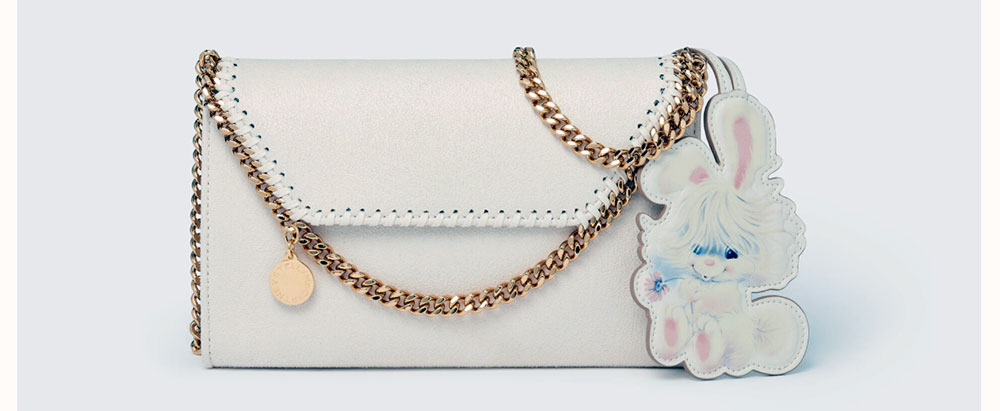
Stella McCartney was talking about vegan materials before other brands got on board climate change. Her limited-edition Falabella mini shoulder bag ($950) pays homage to Lunar New Year 2023. Adorned by a lucky rabbit charm, the bag is made with vegan fabric, recycled brass and aluminum chains and Global Organic Textile Standard (GOTS)-certified cotton laces. GOTS is a certification that limits the use of toxic bleaches, dyes and other chemicals during the textile production process.

Another pick from Reformation, this oversized shirt ($128) is mostly (96%) made with organically grown cotton, which means it doesn’t use genetically modified seeds and restricts many chemicals. Reformation has a tool, called RefScale, to educate shoppers on how much CO2, water and waste they’re saving by shopping the brand’s products over others.
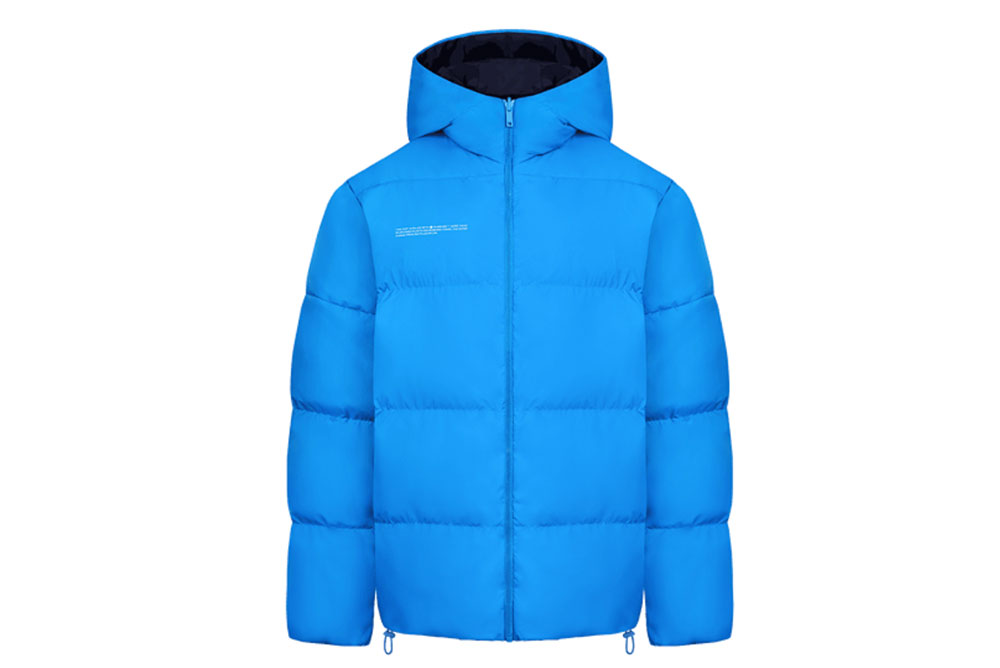
Pangaia makes colorful hoodies, track pants, jackets and T-shirts—”everyday essentials using innovative technology and bioengineered materials.” This cerulean-blue bomber jacket ($595) is made with Flwrdwn™, an alternative to duck and goose feathers that’s created using wildflowers. Its outer shell is recycled nylon.
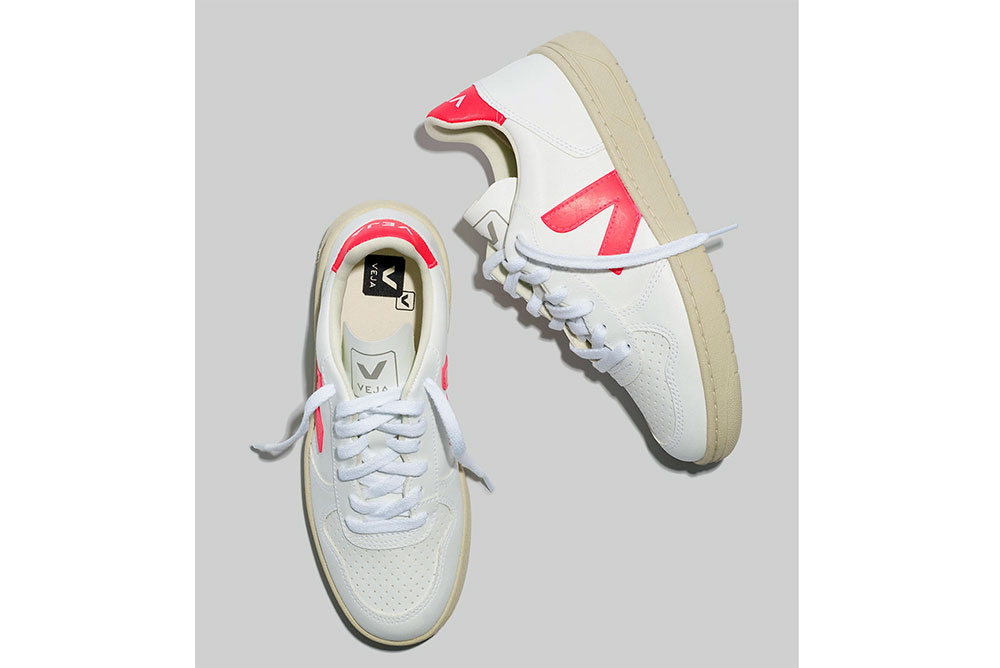
Founded in Paris, fashion favorite Veja manufactures these ec0-friendly V10 sneakers in Brazil. They’re made from vegan leather with soles constructed of wild rubber responsibly harvested from the Amazon rain forest. They sell for $175 at Madewell.
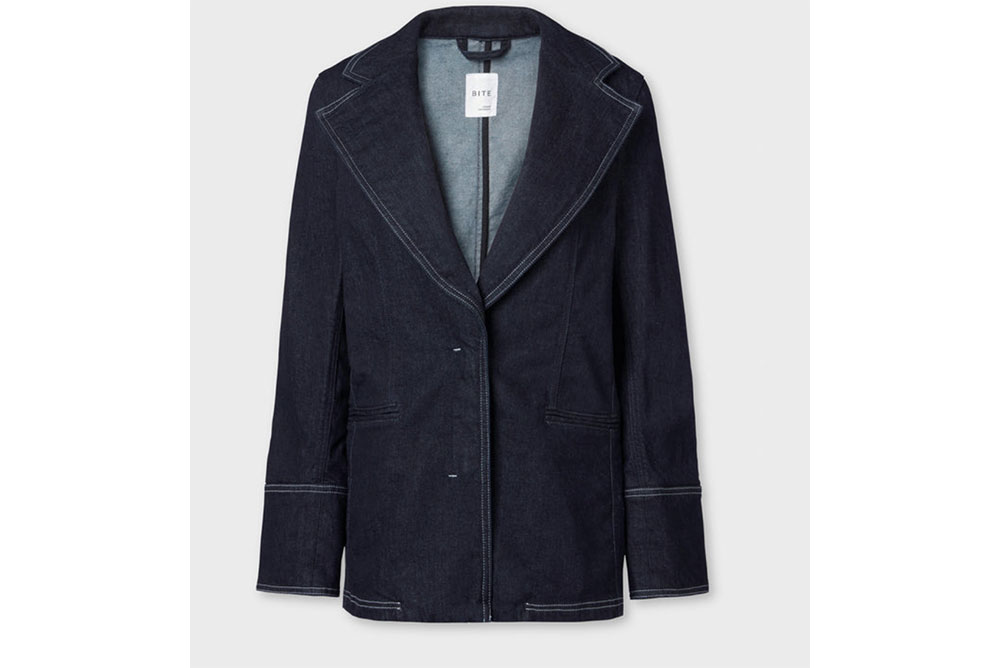
If you’re looking ahead to spring, denim never goes out of style, and it’s looking more popular than ever if the spring runways are any indication. London and Stockholm-based Bite (which stands for By Independent Thinkers for Environmental progress) uses eco-friendly materials like GOTS cotton for this spiffy, tailored denim blazer. It’s an investment at 420 euros, but its wide lapels and cuffs, hidden buttons and contrasting white stitching make it far more chic than your old jean jacket.
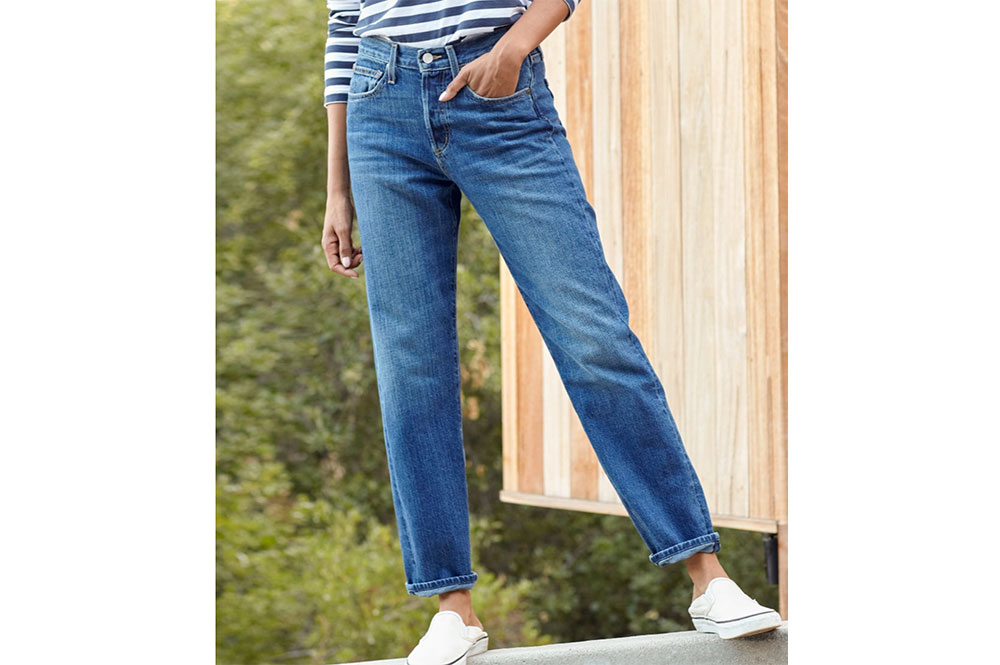
When it comes to jeans I’m like Goldilocks. I don’t want them too skinny, too baggy, too high-waisted or too pricey—definitely less than $200. These Fillmore boyfriend jeans, a blend of organic and recycled cotton, fit my criteria and just make the price cut (they’re $198 at Outerknown). If I get tired of them, I could sell them on the company’s Outerworn platform, launched in 2021.
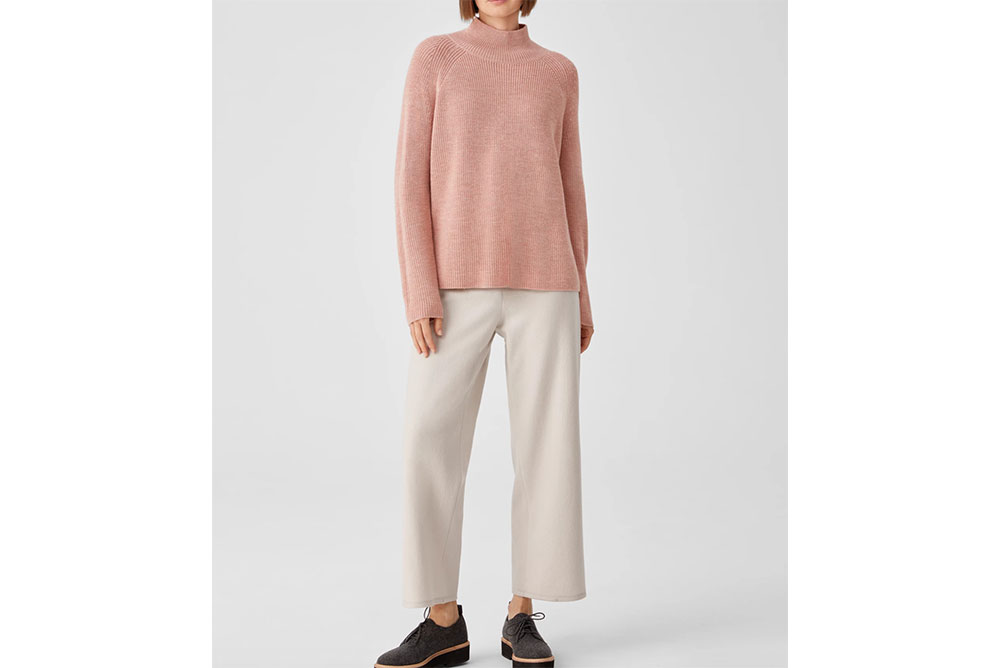
A cold-weather staple, Eileen Fisher’s merino turtleneck top meets the Responsible Wool Standard — the wool comes from farms that respect animal welfare, practice land management and protect workers. The company works on reducing water usage when making new clothes and collects gently used garments to resell, donate or remake them into new designs. They’ve taken back more than 1.9 million pieces since 2009 as part of their vision for a future without waste. Only limited sizes are still available.
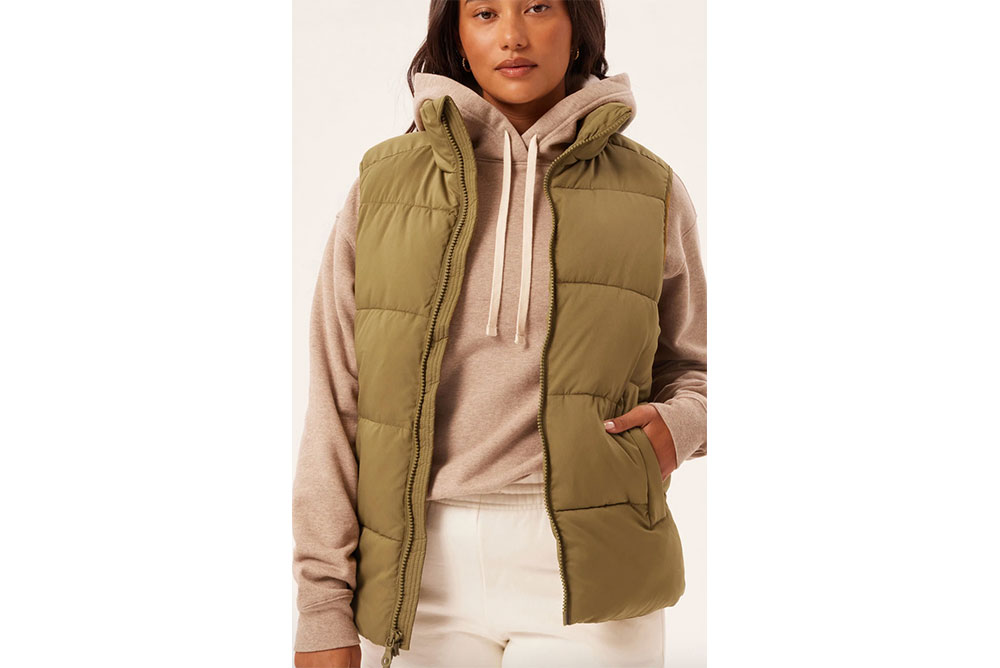
A practical layer for T-shirts, sweatshirts, etc., and a fashion statement, too, the Everyone Puffer (unisex) is made with recycled plastic bottles to keep the planet happy and you looking stylish. It’s water-repellent, wind-resistant and has an adjustable bottom bungee you can cinch in to keep cold air out. It sells for $128. When you no longer want it, send it back and ReGirlfriend will recycle it into future clothes.
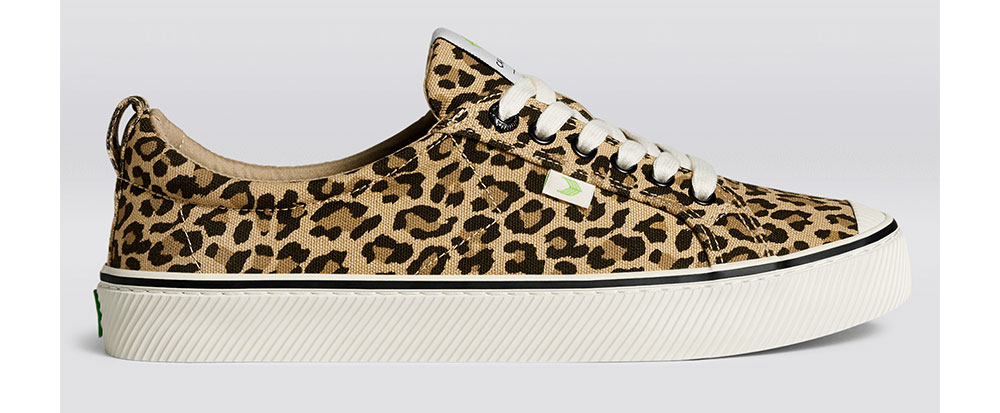
Cariuma says it makes old-school shoes, like these OCA leopard -print canvas sneakers, with new-school ethics. The brand uses GOTS cotton, natural rubber gathered from tree bark without harming the actual tree, cork for a vegan insole and recycled plastic bottles for linings, laces, threads and labels. The sneakers sell for $89 and come in a ton of other prints and colors.
MyLittleBird often includes links to products we write about. Our editorial choices are made independently; nonetheless, a purchase made through such a link can sometimes result in MyLittleBird receiving a commission on the sale. We are also an Amazon Associate.

Love this one, Janet! Supporting fashion industry leaders who support our precious Mother Earth? I’m in! Thanks for bringing all these responsible manufacturers to our attention!
Xoxoxo